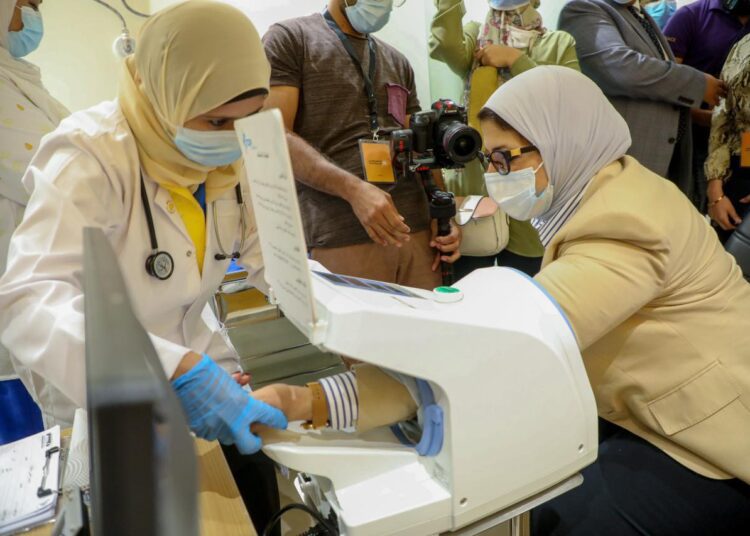Blood plasma derivatives are to be added to the list of locally made pharmaceutical products and cut import costs.
On 14 July, the Ministry of Health and Population launched the national plasma donation project within a presidential initiative to make Egypt self-sufficient in plasma derivatives.
Consequently, medications for liver and kidney diseases and burns can be made in Egypt, Minister of Health Hala Zayed said.
Indeed, such a move would be another step on the road to making Egypt a regional centre for pharmaceuticals manufacture for all ailments.
Earlier this week, the minister announced that 281 people have already donated blood plasma at collection centres since the project launch.
“Donors are being received in six plasma donation centres in Giza, Alexandria, and Minya,” the minister said, adding that another 20 centres are to open later this year. The minister urged people over 18 years old to give plasma once every two weeks and become permanent donors.
Prime Minister Moustafa Madbouli said in April that the first factory for blood plasma derivatives will open in the New Administrative Capital by the end of 2022 in accordance with presidential directives.
Says Dr Magdi Badran of the Egyptian Society of Pediatric Allergy and Immunology: “Egypt currently depends entirely on imports of plasma derivatives.”
“It is an important move by the state to embark on collecting plasma and its derivatives for the first time,” Dr Badran told this newspaper.
“Plasma collection will be a tremendous breakthrough in healthcare in Egypt and in Africa,” he added.
Plasma-derived medicines contain proteins, albumin, blood clotting substances to treat life-threatening diseases, Dr Badran said.
“Therefore, local manufacture of plasma derivatives will supply treatments for burns, cancer, haemophilia, and diseases of the liver and kidneys.
“This project will have an economic advantage: it will reduce import costs of plasma derivatives and Egypt is also expected to become a regional exporter of plasma derived medicines,” he said.
Dr Badran pointed out that legislation would be necessary to guarantee the safety of plasma collection.
In April this year, President Abdel Fattah El Sisi signed a law regulating the process of blood and plasma collection.
The executive regulations of the law specify the conditions for donation and the number of donations based on the health and age of the donor. They also set the terms and conditions under which a person may become a regular donor.
These regulations also prohibit the use of any blood units, blood components, or plasma derivatives, be they imported or donated, except after ensuring they are free from infectious diseases and viruses.
Dr Badran said the Ministry of Health should launch a media campaign encouraging Egyptians to become plasma donors.
Donors themselves benefit hugely, ensuring healthy bone marrow to produce blood cells and stimulate organs that renew plasma proteins.






Discussion about this post